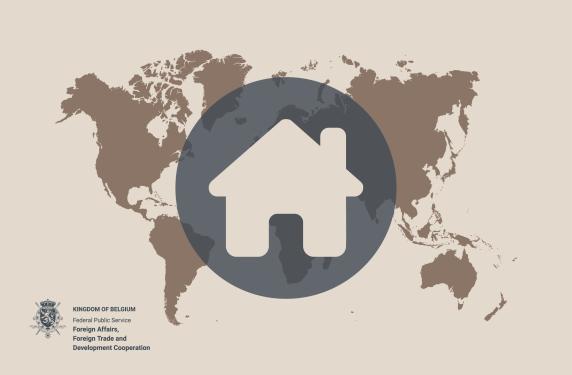-
Last updated on
A document that is official and legal in one country is not necessarily official and legal in another. Many documents must therefore be legalised if you wish to use them abroad.
The legalisation process involves checking the origin of the relevant document. Legalisation is official confirmation that the signature of the civil servant that has signed a document, or the seal or stamp on the document, is legitimate.
It is not only the signature of the person that has issued the document that is legalised, the process can also legalise the signature of the legalising registrar. Every signature, every seal and every stamp will be legalised by the person authorised to do so and who is familiar with each signature, seal or stamp. This explains why various legalisations are sometimes required, in a specific order.
A country may have signed up to a legalisation treaty that encompasses agreements about how countries accept one another's official documents. Many countries have signed up to the "Apostille Convention" of The Hague of 5 October 1961. With this, just 1 legalisation is required via an apostille stamp.
Questions and answers about the legalisation of documents
For legalisation from abroad, you can also consult the website of our representative at the location concerned, i.e. Belgian embassies and consulates
In order to further refine your question, you can also use the Search criteria
Legalization
The following countries from the jurisdiction of this Embassy are members of the Apostille Convention. Documents from these countries do not need to be legalized by the Embassy. A single legalization by the national competent authority of this country suffices to be able to use the document for a Belgian authority.
- Australia: Department of Foreign Affairs & Trade
- New Zealand: Department of Internal Affairs
- Fiji: Ministry of Foreign Affairs
- Cook Islands: Ministry of Foreign Affairs & Immigration
- Niue
- Samoa: Ministry of Foreign Affairs and Trade
- Tonga: The Ministry of Foreign Affairs & Immigration & Citizenship
- Vanuatu: Vanuatu Financial Services Commission
Documents from countries that are not party to the Apostille Convention must be legalized twice: first by the competent national authority of the country that has drawn up the document, and then by the Belgian Embassy in whose consular jurisdiction this country is located.
Documents drawn up in a language other than Dutch, French or German must be translated into one of these languages. PLEASE NOTE: There is an exception for visa applications: documents drawn up in English do not need to be translated. Translations must be made by a recognized translator. All translation costs are the responsibility of the applicant.
In Australia, documents must be translated (into Dutch, French or German) by a NAATI accredited translator. In New Zealand, documents must be translated (into Dutch, French or German) by a translator accredited by NAATI or by the Translation Service of the Department of the Interior
All documents must be original documents.
The documents, and in particular deeds of marital status, may not be older than 6 months.
Since October 2020, the Belgian Embassy has been using a system of digital legalization (e-legalization).
e-legalization
What is an electronic legalization?
Electronic legalization is legalization in electronic form. A PDF with the image of a legalization sticker is added to a scanned or already electronic document. This pdf is signed with an electronic signature on behalf of the FPS Foreign Affairs. The image of the sticker shows the scan of the signature of the consul who legalized the document and the seal of the consular post.
How do I have a paper document legalized electronically?
The paper document is scanned by the consulate after analyzing the document and uploaded to e-legalization. The document is then automatically added to the electronic authentication.
How does the applicant obtain legalization?
The document will be automatically sent to the e-mail address specified at the time of request. If the applicant does not have an email address, they may be given a receipt with the information necessary to access their document on the LegalWeb verification site.
How does it work in practice?
After receiving the payment for the legalization, the Embassy does the following:
- The document is checked, scanned and then electronically signed by the consul
- The seal of the consular post and the signature of the consul are applied electronically on the legalization.
- As well as a unique QR-code at the bottom of the electronic legalisation
- The original paper document is handed over to the citizen. Nothing has been added to the original paper document.
- The electronic legalization is sent to the citizen by email or a receipt receipt is handed to him with the information necessary to access his document on the LegalWeb control site.
- The citizen can consult his electronic legalisation on LegalWeb and download, save or send it to a third party.
- The Belgian government can consult and check the legalization on LegalWeb by using the file number (stated on the receipt) or by using the legalization check number.
Foreign documents destined for Belgium are legalized electronically. There is no longer a sticker on the paper document.
Foreign documents intended for a country other than Belgium (e.g. parental consent) can be legalized electronically and with a sticker.
First, check whether the foreign embassy or consulate accepts electronic legalization.
Example of e-legalization

